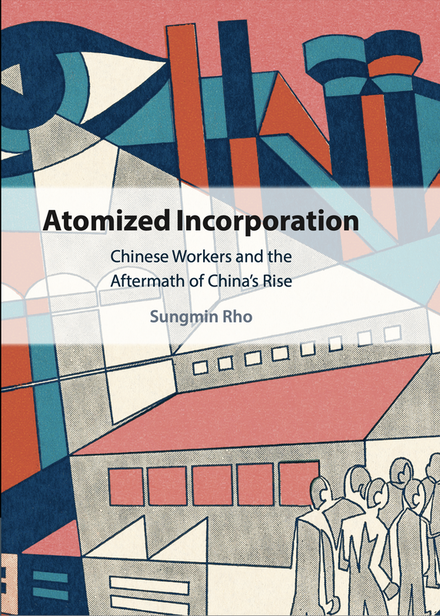
Atomized Incorporation: Chinese Workers and the Aftermath of China's Rise (2023, Cambridge University Press)
In this book, I ask whether the Chinese regime's selective toleration of workers' protests has appeased factory workers' discontent. With export-led growth no longer sustainable, the regime faces new challenges in state-labor relations. Rural-born migrant workers, who make up the bulk of low-skilled factory workers, have engaged in protests to demand better wages and working conditions. The central and local governments take a relatively tolerant approach to these protests, but ensure that workers' demands remain job-specific. This approach, which I call atomized incorporation, is assumed to ensure the long-term resilience of the authoritarian regime.
The book explores theoretically and empirically the inevitable dilemma of atomized incorporation, which allows some collective claim-making without workers' organizing. I theorize the potential benefits and limitations of atomized incorporation from a comparative perspective. If small protests are successful in ensuring regime resilience, what might explain why other authoritarian countries choose different strategies? Conversely, what might be the reasons the Chinese regime does not pursue other avenues, such as institutional co-optation or corporatism, that are considered effective in stabilizing state-labor relations? This book empirically examines these questions from the workers' perspective. Drawing on quantitative and qualitative data collected over two years of intensive field research, I argue that atomized incorporation has successfully demobilized the labor movement because it encourages workers with resources for collective action to reap the rewards. However, this also means that many aggrieved workers are left out because they do not have access to such resources. The regime's toleration of workers' demands as atomized economic agents, but not as social and political beings, makes it difficult to depoliticize workers' discontent.
Link to the CUP webpage is here.
In this book, I ask whether the Chinese regime's selective toleration of workers' protests has appeased factory workers' discontent. With export-led growth no longer sustainable, the regime faces new challenges in state-labor relations. Rural-born migrant workers, who make up the bulk of low-skilled factory workers, have engaged in protests to demand better wages and working conditions. The central and local governments take a relatively tolerant approach to these protests, but ensure that workers' demands remain job-specific. This approach, which I call atomized incorporation, is assumed to ensure the long-term resilience of the authoritarian regime.
The book explores theoretically and empirically the inevitable dilemma of atomized incorporation, which allows some collective claim-making without workers' organizing. I theorize the potential benefits and limitations of atomized incorporation from a comparative perspective. If small protests are successful in ensuring regime resilience, what might explain why other authoritarian countries choose different strategies? Conversely, what might be the reasons the Chinese regime does not pursue other avenues, such as institutional co-optation or corporatism, that are considered effective in stabilizing state-labor relations? This book empirically examines these questions from the workers' perspective. Drawing on quantitative and qualitative data collected over two years of intensive field research, I argue that atomized incorporation has successfully demobilized the labor movement because it encourages workers with resources for collective action to reap the rewards. However, this also means that many aggrieved workers are left out because they do not have access to such resources. The regime's toleration of workers' demands as atomized economic agents, but not as social and political beings, makes it difficult to depoliticize workers' discontent.
Link to the CUP webpage is here.